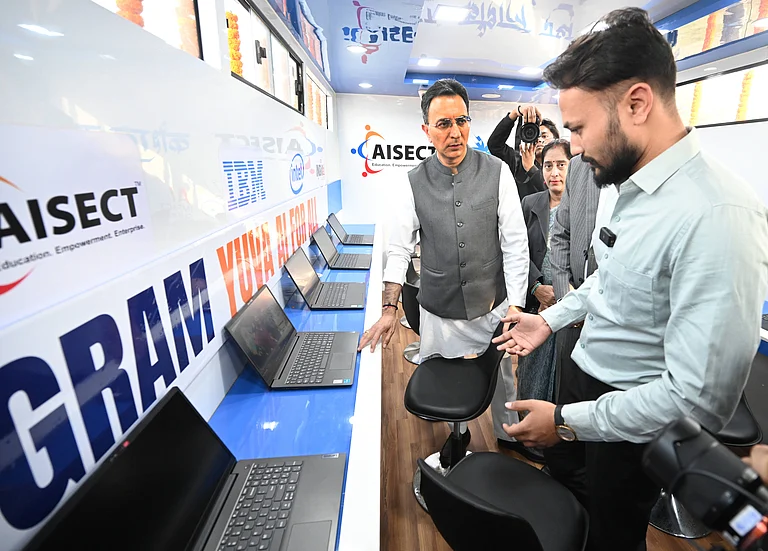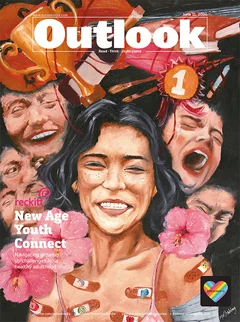In every generation, the youth inherit a world fraught with new challenges and opportunities that they must navigate deftly to create systems that work for them. This also holds true for the youth of the current generation, with the added caveat that they are living through a time of unprecedented social, economic, political, demographic and digital changes.
Despite this backdrop, youth enter the complex world of work with boundless energy, enthusiasm, and ambition to advance their careers and make meaningful contributions that lay the foundation for the rest of their professional lives. However, this momentum needs to be maintained to see them through their ambitions until the end of their careers, navigating the crests and troughs, especially when met with inequity and other challenges.
Hundreds of millions around the world suffer from discrimination in the world of work, which not only violates their fundamental human rights but has wider economic consequences, like widening the chasm of inequality. The International Labour Organization was founded on the principle of social justice as the basis for universal and lasting peace, which in itself is premised on the equality of opportunity and non-discrimination. Being the United Nations’ normative agency, these have further been enshrined in the International Labour Standards that form the core conventions through the equal remuneration and non-discrimination conventions.
Millions of workers suffer discrimination worldwide, which violates their fundamental human rights and has wider economic consequences, like widening the chasm of inequality
These promote the elimination of intersectional discrimination, including discrimination based on gender, race, ethnicity, and disability, and the creation of workplaces that are fair for everyone while ensuring equal pay for equal work, regardless of the person’s gender, race, and physical abilities.

Diversity and inclusivity have become essential considerations for organisations in the last decade, as even the ILO’s Transforming Enterprises through Diversity and Inclusion report from 2022 has shown they are associated with greater productivity, innovation, and workforce well-being.
The past decade has also witnessed an uncertain job market and the prospect of flexi hours that allows for multiple careers, both pressing realities confronting youth today. As the future of work takes shape, there is also a tremendous thirst for entrepreneurship and freelance work, which, in addition to technical skills, require creative skills and an innovative bent of mind. At the same time, the rise of digitalisation and artificial intelligence has made certain jobs obsolete.
The ILO and the International Organisation of Employers (IOE) undertook a study in 2019, Changing Business and Opportunities for Employer and Business Organisations, to ascertain the changing trends and seek new opportunities for employer and business member organisations. Among the megatrends of technological innovation, demographic shifts, and climate change, the global shortage of skilled labour emerged as a significant trend shaping the world of work. This highlights the importance of upskilling and reskilling, which strengthens one’s capacity to navigate in the uncertain world of work, not just vertically in the same sector but also horizontally across multiple industries and in various work modalities.
Diversity and inclusivity (D&I) have become essential for organisations in the last decade, as evidence shows that D&I leads to greater productivity, innovation, and workforce wellbeing
Skilling enhances ownership in one’s career. However, technical skills can only take a person so far. Given the practical considerations in any job, most of the tasks in the workplace also require core skills that relate to how well-adjusted people are in their environment and their ability to regulate their thoughts, emotions and behaviours. These skills, related to social and emotional aptitude, are demonstrated in their motivation to learn, how well they can work in a diverse team, manage differing expectations and communicate with emotional intelligence, especially when challenged by someone from a different background.
The core skills are what enable a person to assimilate the world of work and the world at large. Inclusion is an important lever in empowerment and feeling a sense of belonging, as employees need to feel valued, respected, and fairly treated through inclusive business practices, organisational culture and leadership. The symbiotic relationship between technical and core skills constitutes lifelong learning, which is a key enabler of human development and decent work.
The pandemic exposed the cracks in the world of work and opened the opportunity to build better, more resilient systems that withstand future economic shocks and also safeguard workers against them. Making diversity and equity a tangible representation in the workplace and fostering a culture that advocates for lifelong learning then become essential cornerstones for the workplaces going forward to ensure the aspiring youth can make the best of their potential.
MORE FROM THIS ISSUE
Michiko Miyamoto is Director, ILO DWT/CO-New Delhi























